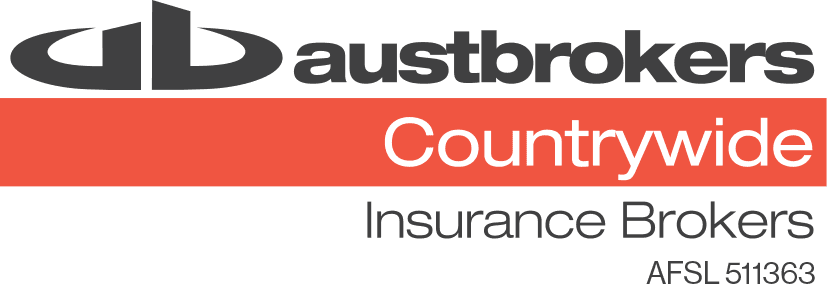Receive a Quote for Business Insurance

There are usually three types of insurance:

If you have employees, you are required to have this to protect them in the event of an accident or illness.

If you own and operate motor vehicles as part of your business, you must have compulsory third party (CTP) insurance to cover you against personal injury claims that relate to the use of those vehicles.

This is often also compulsory for certain types of businesses and the self-employed, such as plumbers and electricians in certain states, and covers you for third-party death or injury.
| Response | Female | Male |
|---|---|---|
| Yes | 76.78% | 71.48% |
| No | 23.22% | 28.52% |
There are a number of kinds of business insurance available in Australia, all of which protect you for slightly different risks and dangers. Here's a clear breakdown of what they do:
Liability cover protects you from the numerous legal risks you encounter when you run your own business. Depending on the type of business you run, you can get liability cover with the following types of insurance:
Another important part of running a business is being able to protect everything that you own and the money you make from it. Some of the policies you can get include the following:
It's also possible to get cover for interruptions that can impact or prevent you from earning an income. These types of business insurance protections can often be added to a policy and include the following:
The right insurance for your business will depend on several factors, including the kind of business you are in, its size and structure, and the industry you belong to. To narrow it down, here are some of the questions you might need to ask yourself as a business owner:
| Key questions | Answer | Cover types you may need: |
|---|---|---|
| Do you make goods that are sold to the public? | Yes | Product liability insurance |
| Do you serve customers in a public place or at your premises? | Yes | Public liability insurance |
| Do you give advice in a professional capacity? | Yes | Professional indemnity insurance |
| Do you have staff working for you? | Yes | Workers compensation, employee fraud or dishonesty insurance |
| Do you have any specific things you need protected? | Yes, I have machinery | Machinery breakdown insurance, electronic equipment insurance. |
| Do you do most of your business online? | Yes | Cyber liability insurance |
The answers to questions such as these can give you an indication of where your main exposures are as a business and the kinds of business insurance you might need.
Like most types of insurance, it comes down to your specific circumstances. The amount you pay for cover will depend on what insurance you need, the type of business you run, how many people you employ and where you operate.
To give you an idea though, the tables below outline the average costs for professional indemnity insurance and public liability. The average cost for the former for a self-employed tax agent for example is $55.58 a month while the average small business owner can expect to pay $115.21 per month in public liability insurance.
Professional indemnity insurance
| Insurer | Yearly cost | Monthly cost | Excess payable on claims |
|---|---|---|---|
| $684.75 | $57.06 | $1,000 | |
| $511.50 | $42.63 | $0 | |
| $1,074.56 | $89.55 | $0 | |
| $430.65 | $35.89 | $2,500 | |
| $563.78 | $46.98 | $1,000 | |
| $736.73 | $61.39 | $750 | |
| Average cost | $667.00 | $55.58 | $1,292 |
Data was taken from our quoting engine in February 2025 based on a sole trader tax agent looking for $250,000 in professional indemnity insurance cover.
Public liability insurance
| Industry | Food | Food | Construction | Construction |
|---|---|---|---|---|
| Employees | 5 | 10 | 10 | 30 |
| Estimated Annual revenue | $200,000 | $400,000 | $500,000 | $1,000,000 |
| Insurer 1 | $45.20 | $63.21 | $508.75 | $1,003.75 |
| Insurer 2 | $140.01 | $223.58 | n/a | n/a |
| Insurer 3 | $160.41 | $311.67 | n/a | n/a |
| Average cost (per month) | $115.21 | $199.49 | $508.75 | $1,003.75 |
Quotes taken from BizCover's Insurance engine in December 2024. Policies for food industry come with an excess of $500.
Applying for a business insurance policy can be stressful if you do it yourself. Our Business Insurance Finder™ makes it easier though. This lets you get personalised quotes, compare policies side by side and tailor coverage to your needs. You'll be asked a few questions to help determine what kind of insurance you want or need and you'll also be asked a few simple questions about your business, including how many employees you have and your estimated annual revenue.
Alternatively, if you don't want to do it yourself, you can get a business insurance quote from a broker by filling out the form below. Brokers can be helpful because they're insurance experts and can make sure you're getting the cover your business needs. They'll also take the time to work out the ins and outs of your business.
Receive a Quote for Business Insurance

Farm insurance can provide the protection Australian farmers need. It can include ✓ building insurance ✓ crop insurance ✓ livestock insurance
Complete guide to getting insurance for trucks in Australia.
Read the Finder guide to workers compensation insurance and get cover in place.
This hourly rate calculator helps you consider your costs and profit and divide that by the number of hours you will work.
Read more about NRMA business insurance and its features.
If you run a business from home you need to make sure your business is properly insured. Read our guide to this specific type of business insurance and learn how to cover your home business.
Receive quotes for cyber liability insurance from Australian brands.
Commercial property insurance is designed to protect business items.
When faulty products cause injury or loss, your business needs to protect itself with product liability insurance. Learn how product liability cover works and get quotes.